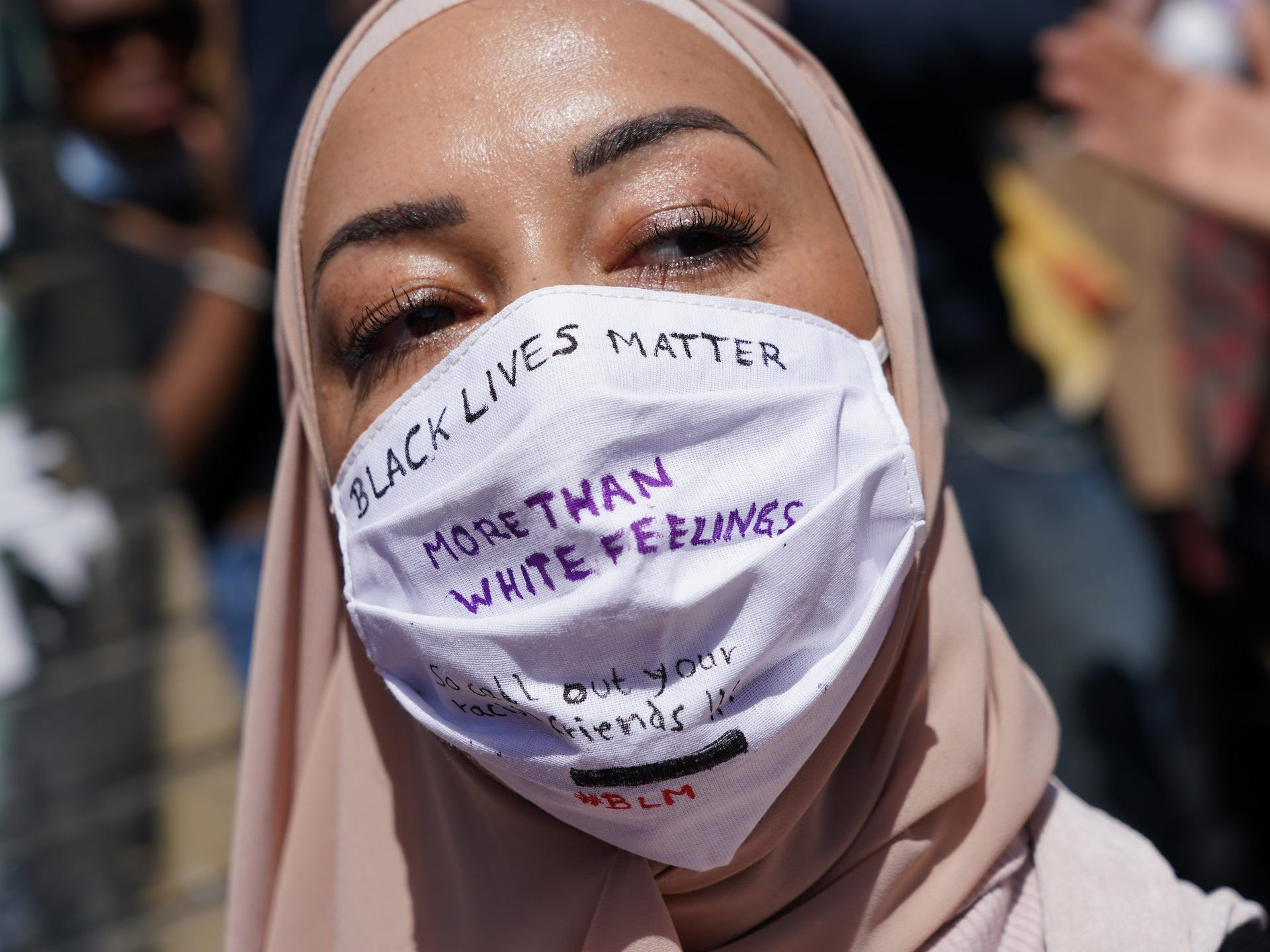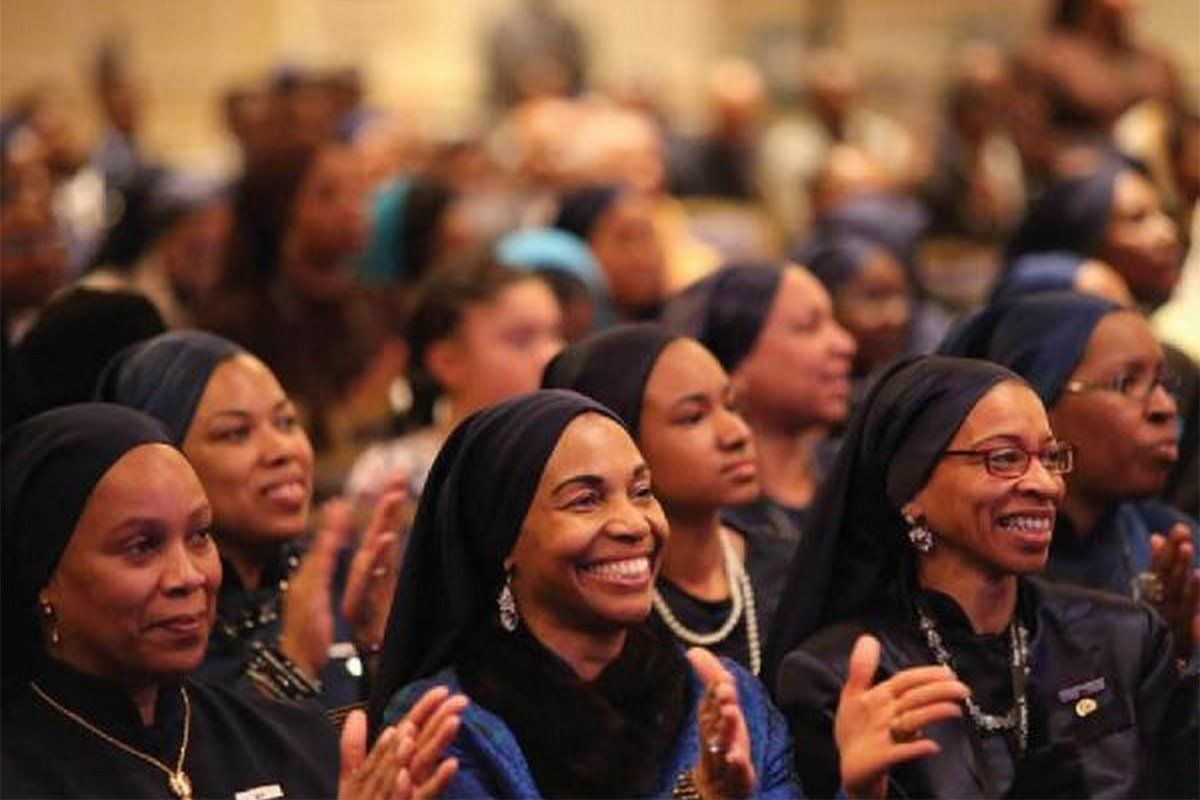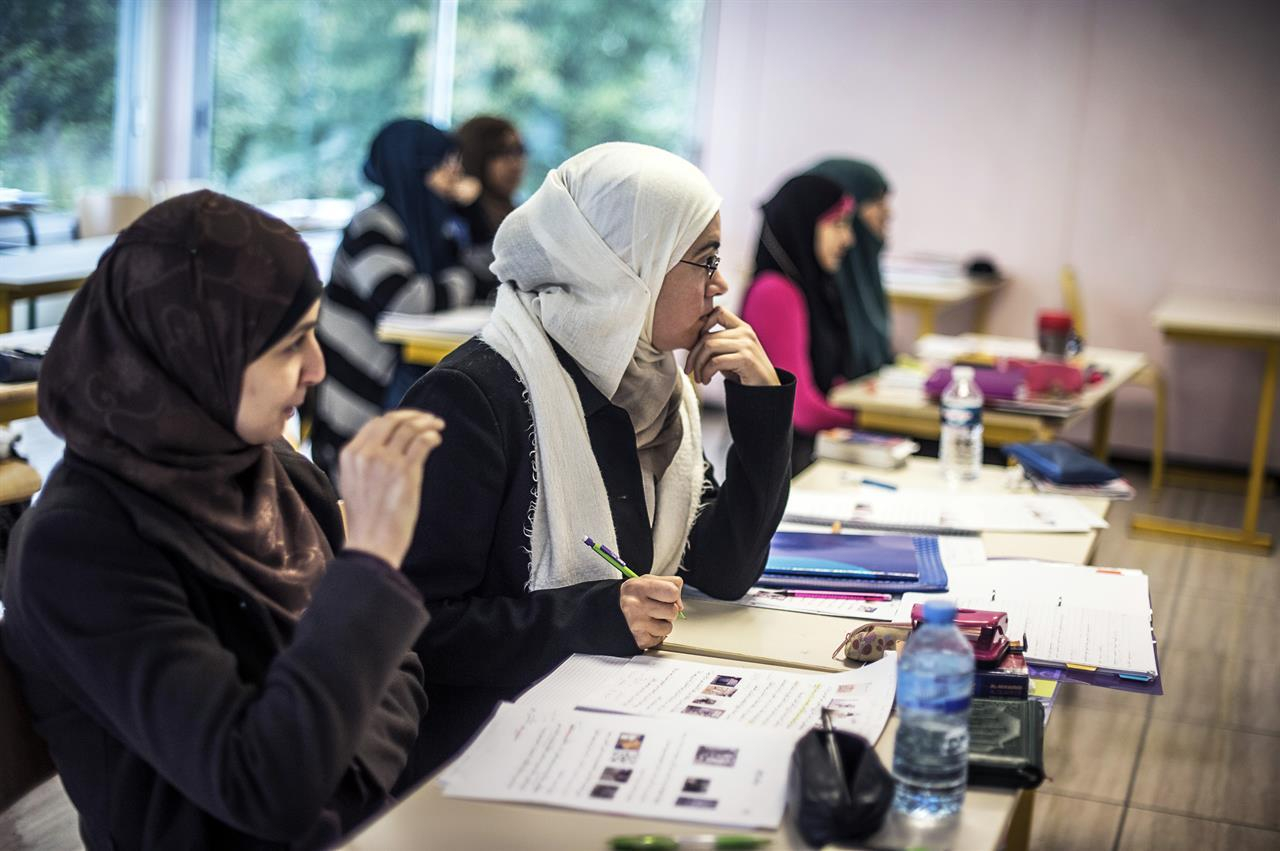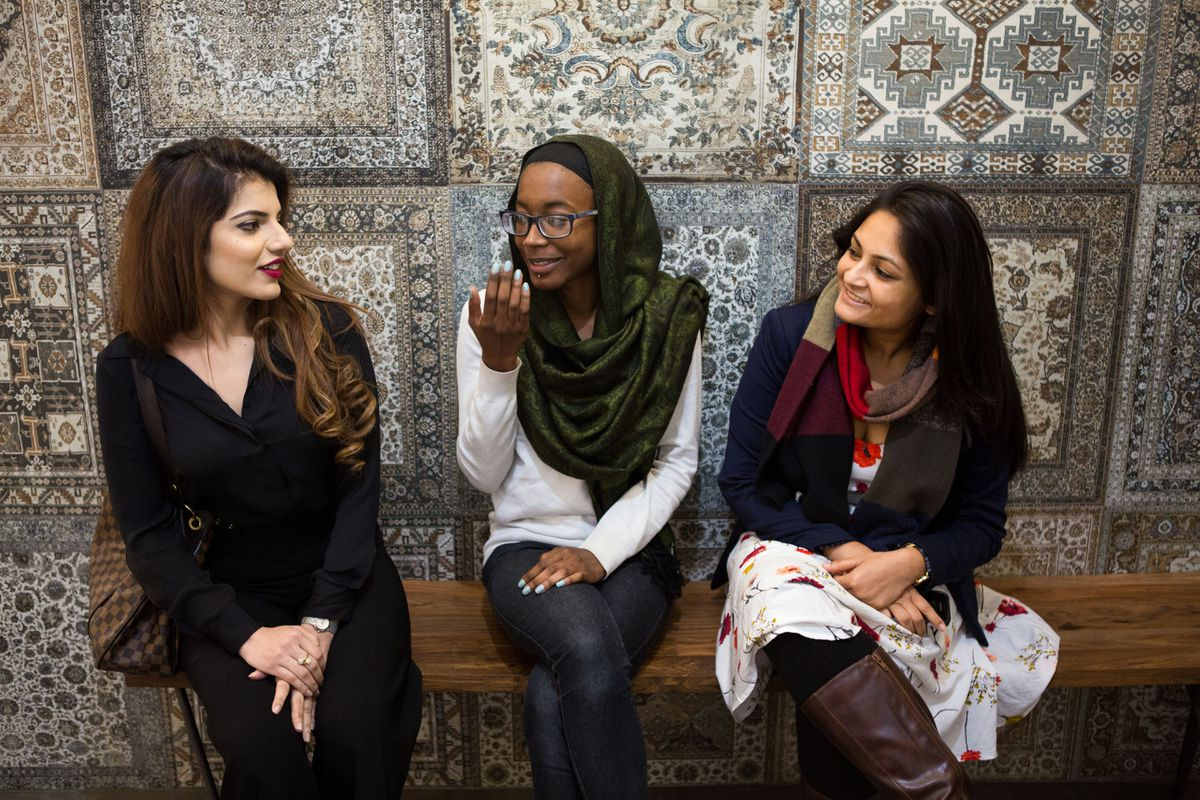A Black Muslimah’s Perspective on Anti-Blackness in Our Community
Lifestyle
|
Jun 8, 2018
|
7 MIN READ

Stop making us feel like the N word!
For many Muslim women, a harsh reality we are forced to endure is the discrimination we face from society at large. It is largely intersectional, encompassing Islamophobia, sexism, racism – just to name a few. However, it can make you feel even more disheartened when you are subjected to such discrimination by members of your own community when many of us already expect it from those who aren’t. A community is supposed to be a home, a safe haven from the negative energy that the outside world often emits.

Image source: Twitter
I’m sure it is commonly known by now that an individual can be ostracized for what they believe in. As absurd as that sounds, yes, many Muslims are targeted due to their beliefs. But beliefs can change – skin color cannot. One would imagine, because we share this frightening reality, that Muslims would band together against outside hate, right? Unfortunately, the Muslim community has its own stomach-wrenching issue with racism, but even more than that, an issue of Arab supremacy. In this post, I will be focusing on the painfully prevalent colorism within the Muslim community.
The consensus is that racism does not come from Islam, it comes from individual Muslims. Islam is not a religion with racist rhetoric, as the Quran and Sunnah clearly promote racial equality. A famous example is this:
“All mankind is from Adam and Eve, an Arab has no superiority over a non-Arab nor a non-Arab has any superiority over an Arab; also a white has no superiority over black nor does a black have any superiority over a white except by piety and good action” (Last Sermon of the Prophet (saw), Hadith Bukhari).
This then begs an important question: If our Prophet, peace and blessings be upon him, called out racism all those years ago, why are we having trouble following his teachings? There are those within the community who are in fact preaching bigotry and hatred or enabling it in such a hypersensitive time. They may be too cowardly to stop this Arab supremacy like the disease it is.
Yes, it is a disease of the heart to assume that the black girl who just entered the mosque is a revert, for example, when in fact there are many many Black Muslims around the world. It is, in fact, the role of those prominent lecturers and preachers to pinpoint, call out, and help eradicate this horrendous mentality that otherizes Black Muslims and has, unfortunately, become the norm within the community.

Image source: Sapelo Square
Not everyone is affected by this serious issue and therefore may not recognize its presence day-to-day. It is therefore imperative that those of us who are affected by it share the uncensored truth about racism within the Muslim community.
As I am both Black and Muslim, I must add that racism from the Muslim community and outside of it are quite different. From others, racism is the most direct and apparent; I have been called the N-word on many occasions. As a Muslim, following a religion rooted in peace, it is shocking to experience racism from someone with the same beliefs. Many Muslims often have a sense of entitlement when it comes to the religion, as though it was only made for individuals who look like them. Oftentimes these individuals have little knowledge about Islam, so they feel as though it is okay – or perhaps as if Islam was their religion first before anyone of a darker skin tone became Muslim.
Examples
It is often a simple act of exclusion that can show the true colors of a group of Muslims. The first and most common instance of being made to feel excluded is at Friday prayer. Sometimes racism is as simple as not mentioning the issues faced by black Muslims around the world unless the imam is black or the mosque is frequented by Black Muslim groups.
I can clearly recall that when I was growing up, I attended Friday prayers in a mosque frequented by Nigerians, and they would talk about issues facing ALL Muslims, not only Black Muslims. And yet when I would attend other mosques around London, issues spoken about would only pertain to South Asian Muslims or Arab Muslims. No talk about Somalia, Nigeria, Sudan, Gambia, etc. It was as if Black Muslim communities didn't exist.
This also rears its ugly head in the Muslim community on social media: in 2017 alone, when slavery was uncovered in Libya and when there was a terrorist attack that killed hundreds in Somalia, there was a deafening silence on the part of non-Black Muslims. Both of these issues are as relevant today as they were ten years ago, yet there is still so little light being shed on them. Yet if a tragic incident were to happen in Afghanistan, Pakistan, Syria, or Palestine, that is all you would see on your timeline – there is no way you wouldn’t know about it.
When violence occurs against Black Muslims, however, there is much less outrage or concern. That is not to say that there aren’t a few individuals who post about it, however, the majority of non-Black Muslims would hear about the issue much later.
After several discussions about this issue, a friend of mine affirmed that it may possibly be due to simple ignorance, and not necessarily racism. Though that may be true, it seems that the common thread that runs through the lack of exposure for these issues is that they are only faced by black Muslims, and therefore don’t seem to matter as much to others. Does it matter if the motivation is “simple ignorance” if the effect of that ignorance is racism?

It is high time that we rise up and face this issue head-on. I can say without flinching that the issue of racism within the Muslim community enables the wider prevalence of racism and Islamophobia in mainstream society. It is an exhausting issue that many of us are choosing to ignore for peace of mind. However, it is neither practical nor fair to pretend that the only enemies amongst us are outside the Muslim community.
Another example that comes to mind is something I’m sure we are all too familiar with: a lack of representation of black and dark-skinned women in the modest fashion world. The modest fashion industry is saturated with light-skinned South Asian and Arab girls. Black Muslimah bloggers do exist, but they are often ignored and placed aside. Not all Muslim women are light-skinned and Arab or Asian! Black Muslims exist!
This issue has sparked a social media movement, started by Black Muslimah blogger @poelitical with the hashtag #blackmuslimahexcellence. I am personally an avid user of the tag, as the story behind it is very close to my heart – it provides a way to give Black Muslimahs as much exposure as their light-skinned counterparts. It is well past time that the fashion industry stops tokenizing Black Muslims.
Did you know?
Though figures may vary somewhat, around 40 percent of the African population is Muslim, compared to only 23 percent of the Asian population! Food for thought.
Solutions:
I am writing this to help shed some light on the issue and educate those who are blind to the racism within the Muslim community. It is not an attack on non-Black Muslims but simply letting them know how disheartening it is to feel pushed aside by your own community, especially when that same community is discriminated against by mainstream society as well. It just doesn’t make sense.

Image source: Jenna Masoud for Muslimgirl.com/Getty Images
With that said, there are some concrete steps that anyone can take to help combat racism in the Muslim community:
1. Listen to what Black Muslims have to say. It’s so simple, and yet so difficult for many. Don’t shut down needed discussions of racism by saying things like, “We are all one Ummah.” We know that, of course – but the ummah is clearly divided. If you ignore the problem or try and claim it doesn’t exist, then I am sorry, but you are part of the problem!
2. Find ways to meaningfully include Black Muslims in all things Muslim, whether it's discussions, celebrations, or simply day-to-day events. Not all racism is outright, and much of it comes down to simply feeling invisible to the rest of your community. Look for steps you can take to help black Muslims feel more visible in your own spaces. If you’re not sure where to start, ask for help (and then repeat step one!).
3. Don’t allow personal discomfort to get in the way of being honest about the real issue. There are those who feel that talking about racism is simply “dividing the ummah,” and that this is a more pressing issue than racism itself. That is what you call privilege because it’s rooted in an attitude that if something doesn’t affect you, then it doesn’t exist. No change has been brought about in the history of mankind without conversation.
Disclaimer: I don’t speak for all Black Muslims, as my experience is restricted to what I have experienced as a Black Muslim in the UK.
I am also only specifically speaking on anti-Blackness because I am Black. This doesn’t mean that others can’t also face racism within the Muslim community, and I am in no way invalidating their experiences.
Sassy Telaa is a Nigerian-British student based in London. She curates modest fashion focusing on the non-conventional woman. She also loves to shop, sew, travel and immerse herself in her culture and deen. You can follow her on Instagram @sassytelaa and Tumblr @sassytela.
Subscribe to be the first to know about new product releases, styling ideas and more.
What products are you interested in?

